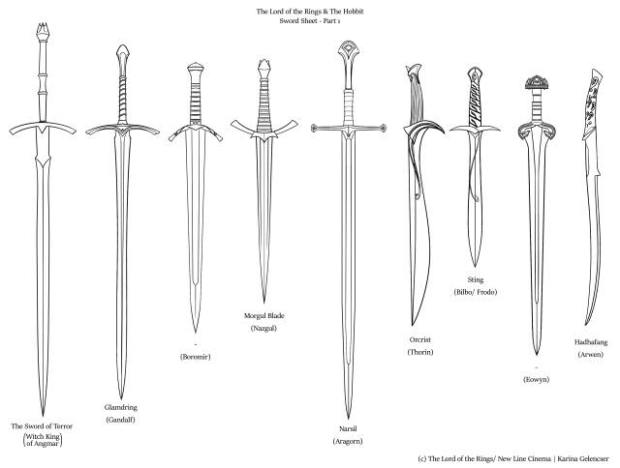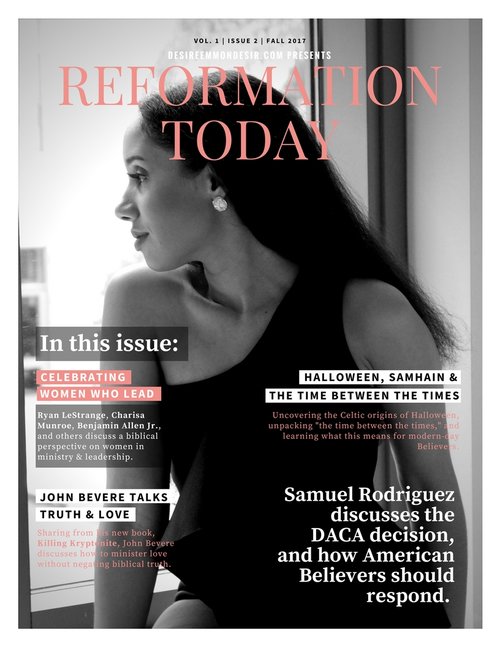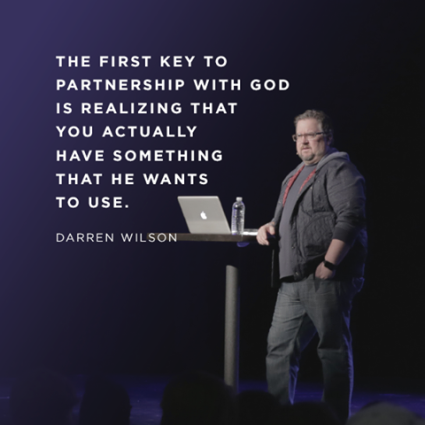
The following is an excerpt from my book How to Write Fiction That Doesn’t Suck, Chapter 2. You can get your own copy of the full book here!
I am extremely particular about the names that I choose for my characters as well as the people groups, geographical places, etc. that show up throughout my stories. It’s actually an ancient, biblical concept to name a thing on purpose because there is a destiny attached to the name.

The Importance of Naming a Thing
In my book Faith and the Imagination, I recount a story of my best friend Jessica coming to visit me. She had never been to my home before (we met in college and currently live in separate states). While looking around my bedroom, she saw a name plate that I’ve had since I was a little girl. My parents bought one for all three of us children. The plate reads as follows:
- Name: Desiree
- Root: Desitee
- French: “longed for.”
- Expression: a woman who is friendly with all she meets
- Personality: a girl who has a strong fortitude
- Natural: someone who enjoys being witty and carefree
- Emotional: an individual who has a lot of compassion
- Character: she provides comforting relief and sustenance
- Physical: daring, dashing, creative, and inspiring
- Mental: her family calls her the wise one
- Motivation: is defiant and fearless in pursuit of her goals
When Jessica read the plate she said: “Dez! This thing describes you to a ‘T!’” And she was right!
I remember years ago when I would look at it and wonder when I would be those things that the name plate said I was or would be. And now in the latter part of my twenties, I can see that I really have grown into the phenomenal woman described on that name plate! I’m not perfect, but this name plate is pretty darn accurate indeed!

In the Bible, you see that a person’s character was defined by what they were named; the destiny was shaped by what they answered to. Here are some biblical examples of “what’s in a name”:
- Abram to Abraham: When God wanted to transform Abram into “a father of many nations” he changed his name to Abraham.
- Jacob to Israel: When God wanted to change Jacob from a trickster into a prince, He changed his name.
- Naomi to Mara: When Ruth’s mother-in-law, Naomi, was heartbroken over the death of her husband and two sons, she changed her name to “Mara” which means bitter.
- Simon to Peter: When Jesus wanted to form the “rock” upon which He would build His church, He changed his disciple’s name from “Simon” which mean “reed” to “Peter” which means “rock.”
- Saul to Paul: When God wanted to change a zealous persecutor into an apostolic (pioneering) powerhouse, He changed his name.
Place names in the Bible were also named for particular circumstances, promises, and more:
- The Tower of Babel: We’ve all heard about the Tower of Babel in Ancient Babylon where God confused the languages of all the peoples of the earth; they couldn’t understand each other so it sounded like a bunch of “babble.”
- Luz to Bethel: When Jacob awoke from the place where he saw a vision of the stairway to heaven, he renamed the place “Bethel” which means “House of God.”
There are countless more examples that I could think of:
- Eber had his son right after the earth currently in “Pangaea form” (all one continent; a supercontinent) broke up and started to separate into the seven continents we now know. Therefore, his son was named “Peleg” which means “divided.”
- The various wells Isaac dug in Canaan were named after the various situations he experienced whilst digging them
- Rachel named her second born “Ben-Oni’ which meant “son of my sorrow” because she was dying in childbirth, yet Jacob changed his new son’s name to “Benjamin” which means “son of my right hand” and is an honoured name.
- Jabez prayed for God to give him a new name because his mother, for whatever reason, had given him a name that meant “pain.”
You may wonder why I am going into such depth over this particular topic. It’s because one name could make—or break!—your entire story.

L.M. Montgomery’s wildly popular character Anne Shirley rebutted Shakespeare’s Romeo and Juliet speech “What’s in a name?” by saying this:
Well, I don’t know….I read in a book once that a rose by any other name would smell as sweet, but I’ve never been able to believe it. I don’t believe a rose would be as nice if it was called a thistle or a skunk cabbage. (Anne of Green Gables)
Anne, throughout the entire Anne Series, had a habit of renaming people, place names, and anything else she could. Ms. Montgomery created her endearing character with the most amazing imagination, yet I highly doubt that the series would have been half so successful if she’d named her heroine “Ethel.” (I’m sorry Auntie Ethel!) So hopefully now that you understand the importance of naming a person or a thing, we’ll delve into how we come up with the names.

The Perfect Name
When searching for “the perfect name,” you can allow a character trait to lead you as in 1) a character trait that a person has or 2) a character trait that you want them to have.
Example: If you have a male character that has a fiery nature, then you could name him “Aiden” because in Irish, “Aiden” means “little fire” (Babynames.com).
The number one way I like to find character names is through baby name searches. My family has a book that has logs of male, female, and surnames with their origins, meanings, and variants that I used to look through frequently for inspiration.
I also like searching the internet for various baby naming sites. Babynames.com is a site I like to use that is chocked full of thousands of names from numerous backgrounds that are divided into alphabetical, gender, and origin categories. Here are two examples.
- William: English for “strong-willed warrior.”
- Alexandra: Greek for “defender of the people”; see also Alejandra, Alessandra, Alixandra, Aleksandra; Alexander, and Alexzander; see also Alexandria and Alexandrea (Greek for “city of Alexander”).
There are also various ways you can search for a name. Here are some that I employ.
- Search by Origin (i.e. Celtic, Latin, Teutonic, French, etc.)
- Search by Meaning (i.e. a name that means “hope,” “pain,” “friendly,” “protector”, etc.)
- Search by People Group or Occupation (i.e. names related to Elves such as “Elf-friend”, “Elf-warrior,” or “Elf-Prince,” or a name that means “farmer,” “baker,” “miller,” etc.)
You may employ these name search strategies similarly when you are looking for geographical names as well (i.e. place names, river names, mountain range names, city names, etc.).
Another way you can name your characters is based off of people you know or even those that you would have liked to know. This includes you. Here are a couple demonstrations.
- A Play on My Name: There was a short story I wrote once and I knew it was loosely based off of a real relationship I had. Therefore, I wanted the main female character to reflect me so I gave her a name that started with a “D” like my own real name. Thus, I became “Delandra.” It fit the character and it fit the story.
- The Name that Wrote a Story: In the story alluded to above, my ex’s middle name was just so perfect that I had to use it for his counterpart in the story. It wasn’t something I set out to do; it just happened. I was walking through the hallways of my university and all the sudden the title, given life through my ex’s name, Othniel, Warrior King, popped into my head.
- My Late, Mysterious, Paternal Grandmother: My father’s mother died when he was about eleven years old. He barely knew her. So by the time I came around, I really didn’t know much about the woman she was. I’ve seen exactly one picture of her and I know her name. Yet this was enough to cause her to begin appearing in various roles through my own stories. My late Irish Grandmother Rosemary became the old Irish grandmotherly maid set in the 1920s also named “Rosemary” in Tumble into Faerie. She then morphed into the sweet middle-aged, mid-Victorian Era French mother “Rosemarie” in my story Pere Noel, the Christmas Faerie, and Petite Christelle. I’m sure she’ll continue to pop up in my work as I continue to write. It’s my way of getting to know the her that I imagine she was or would be.
Naming places can also be just as exciting as naming people. In the aforementioned story Pere Noel, the Christmas Faerie, and Petite Christelle, a major theme is the loss and regaining of hope and faith. I wanted the town’s name to reflect that since it is one of the major settings of the story. So here was my creative logic:
- I need a town name that denotes “hope.”
- I remember in the book The House on Mango Street there was a character whose name was “Esperanza.” “Esperanza” means “hope” en Espanol.
- I can’t use a Spanish name, so I’ll tweak it to sound French and name the town “Esperance.”
And just that quickly, I’d found the name for my dear little town. Places can also be named after a person such as a patron or the original pioneer who founded the town (another common biblical practice). They can be named after a circumstance, after a people group, after its physical location, and more. Be creative!
People groups are similar to the previously mentioned naming categories. Here’s a popular example that you may be familiar with.
Example: In Tolkien’s Silmarillion, it discusses the birth of the Elven peoples. The Elves are known as the “Eldar.” Why? Because they were the first or “eldest” among the Elves, men, and dwarves to be created.
It may be tricky for you, yet you can, again, pull out that old King James Bible (or whatever translation you have, including the Torah) and start researching those people names. Peoples in the Bible were usually named after the forefather that they descended from such as:
- Moab: This was the son of Lot by his elder daughter; the Moabites descended from him. They dwelt in Moab.
- Ben-Ammi: This was the son of Lot by his younger daughter; the Ammonites descended from him. They dwelt in Ammon.
- Esau a.k.a Edom: This was the brother of Jacob/Israel from whom the Edomites descended; the name “Edom” means “red” because Esau was a red, hairy man. Also, his name was changed to Edom after he ate red pottage (stew of some kind). They dwelt in Edom.
- Amalek: This was the grandson of Esau/Edom who was the forefather of the infamous Amalekites from whom the even more infamous Hamaan of the Book of Esther descended.
- Jacob a.k.a Israel: The Israelites were the descendants of Jacob/Israel’s twelve sons. “Israel” means “Prince of God.” To this day that vast majority of the Israelites dwell in Israel.
The name of a people group, as demonstrated by the above examples of the Edomites and Israelites, can denote a particular characteristic.
There is also another example found with the Jewish people. These Ancient Israelis from the lineage of Abraham have also been given the name “Jew” and to many this has sadly become an indicator of a person or people that will swindle or “jew” you because they have historically been extremely blessed in the area of finances (Rabbi Daniel Lapin).
However, I see the Jewish people and their financial blessings in a different light: if I connect, collaborate, or go into business with them, I am likely to be blessed because of their adeptness with money and their position in God’s eyes. Both concepts are two sides of the same coin; it just depends on how you see them and what you allow to influence your thoughts about them.


Going back to my example of Tolkien’s Eldar, you can also see certain traits with these people groups. The Eldar or Elves are intuitively wise, prophetic, discerning, and overall otherworldly in nature. This trait can be enhanced and supported by the fact that they were the firstborn of creation—they’ve been around the longest so naturally, they would be the wisest. They are also extremely skilled musicians and artisans as can be seen in their creation of items such as mithril (ethereal Elvish chainmail); Elven swords such as “Sting,” “Glamdring,” and “Narsil” later reforged and renamed as “Andúril”; circlets (crowns), and much more.
I highly suggest that you find a way to keep a log of all the names for the various characters, peoples, and places somewhere so you can pull it out, add to it, and refer to it whenever necessary.
All of these names, meanings, and definitions also make great material for your book’s appendix.

The Name Denotes the Destiny
I have said before that the name of a thing shapes its destiny. You could see this illustrated in the examples of my own name as well as the examples given with the Eldar. I have yet another example of this for you.
In one of my favourite shows Merlin, the young servant of the equally young King Arthur is secretly a dragon lord. His father was a dragon lord and transferred his powers to his only son upon his death.
On one particular occasion, Merlin was able to rescue the last existing dragon egg. Arthur’s father, Uther, had done his utmost to rid the land of Albion (Britain) of its fiery flying reptiles and only one living dragon remained. When Merlin found the egg, he brought it to the wise old dragon and asked him when it would hatch. The dragon told Merlin that the dragon lord had to name the dragon and only then would it hatch from its shell. So that’s what he did.
Merlin spoke the name “Aithusa” and the little white dragon emerged. The old dragon was pleased and prophesied that white dragons were a rare occurrence, yet he believed that Aithusa was a good omen for Merlin, Arthur, and the future of Camelot.
In this illustration, you see two principles:
- Choosing a Name is a Responsibility, Not a Whim: Merlin needed to discern that name of the dragon hatchling because the name would prophesy the future of the creature and all those connected to it.
- Speaking the Name Ignites the Destiny: As soon as the dragon was named, the dragon was hatched. When you believe in and name a thing, it initiates the commencement of the course of that thing, person, or people.
These naming pointers are not just for fiction, they’re for life. Yet since you are sub-creating your own world in your own stories, you set the rules, boundaries, and destinies of your world and all that is in it.
If you want to read a great series about what interacting with your characters and actually living in your own sub-created world could be like, I highly recommend Cornelia Funke’s Inkheart Trilogy: Inkheart, Inkspell, and Inkdeath.










































